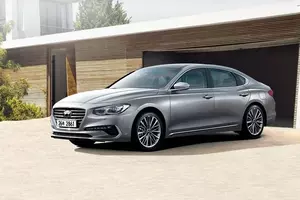
| Vehicle | Precise engine size | Difference from world average | Engine size to consumption ratio | Horsepower from 1 L | Engine size to 100 kg of weight |
|---|---|---|---|---|---|
| 3.0 GDi V6 |
3 L (2999 cc) |
27.8% bigger | 125 cc to 1 mpg | 89 hp from 1 L | 187 cc to 100 kg |
| 3.3 GDi V6 |
3.34 L (3342 cc) |
42.5% bigger | 145 cc to 1 mpg | 89 hp from 1 L | 197 cc to 100 kg |
| 2.4 GDi |
2.36 L (2359 cc) |
0.6% bigger | 91 cc to 1 mpg | 81 hp from 1 L | 147 cc to 100 kg |
| 2.2 CRDi |
2.2 L (2199 cc) |
6.3% smaller | 63 cc to 1 mpg | 92 hp from 1 L | 129 cc to 100 kg |
| Vehicle | 3.0 GDi V6 |
|---|---|
| Precise engine size | 3 L (2999 cc) |
| Difference from world average | 27.8 bigger |
| Engine size to consumption ratio | 125 cc to 1 mpg |
| Horsepower from 1 L | 89 hp from 1 L |
| Engine size to 100 kg of weight | 187 cc to 100 kg |
| Vehicle | 3.3 GDi V6 |
| Precise engine size | 3.34 L (3342 cc) |
| Difference from world average | 42.5 bigger |
| Engine size to consumption ratio | 145 cc to 1 mpg |
| Horsepower from 1 L | 89 hp from 1 L |
| Engine size to 100 kg of weight | 197 cc to 100 kg |
| Vehicle | 2.4 GDi |
| Precise engine size | 2.36 L (2359 cc) |
| Difference from world average | 0.6 bigger |
| Engine size to consumption ratio | 91 cc to 1 mpg |
| Horsepower from 1 L | 81 hp from 1 L |
| Engine size to 100 kg of weight | 147 cc to 100 kg |
| Vehicle | 2.2 CRDi |
| Precise engine size | 2.2 L (2199 cc) |
| Difference from world average | 6.3 smaller |
| Engine size to consumption ratio | 63 cc to 1 mpg |
| Horsepower from 1 L | 92 hp from 1 L |
| Engine size to 100 kg of weight | 129 cc to 100 kg |

| Vehicle | Precise engine size | Difference from world average | Engine size to consumption ratio | Horsepower from 1 L | Engine size to 100 kg of weight |
|---|---|---|---|---|---|
| 3.0 GDi V6 |
3 L (2999 cc) |
27.8% bigger | - | 90 hp from 1 L | 187 cc to 100 kg |
| 2.4 GDi |
2.36 L (2359 cc) |
0.6% bigger | - | 85 hp from 1 L | 157 cc to 100 kg |
| 3.0 V6 |
3 L (2999 cc) |
27.8% bigger | 125 cc to 1 mpg | 83 hp from 1 L | 176 cc to 100 kg |
| 3.3 V6 |
3.34 L (3342 cc) |
42.5% bigger | 139 cc to 1 mpg | 89 hp from 1 L | 209 cc to 100 kg |
| 2.4 |
2.36 L (2359 cc) |
0.6% bigger | 62 cc to 1 mpg | 67 hp from 1 L | 139 cc to 100 kg |
| Vehicle | 3.0 GDi V6 |
|---|---|
| Precise engine size | 3 L (2999 cc) |
| Difference from world average | 27.8 bigger |
| Engine size to consumption ratio | - |
| Horsepower from 1 L | 90 hp from 1 L |
| Engine size to 100 kg of weight | 187 cc to 100 kg |
| Vehicle | 2.4 GDi |
| Precise engine size | 2.36 L (2359 cc) |
| Difference from world average | 0.6 bigger |
| Engine size to consumption ratio | - |
| Horsepower from 1 L | 85 hp from 1 L |
| Engine size to 100 kg of weight | 157 cc to 100 kg |
| Vehicle | 3.0 V6 |
| Precise engine size | 3 L (2999 cc) |
| Difference from world average | 27.8 bigger |
| Engine size to consumption ratio | 125 cc to 1 mpg |
| Horsepower from 1 L | 83 hp from 1 L |
| Engine size to 100 kg of weight | 176 cc to 100 kg |
| Vehicle | 3.3 V6 |
| Precise engine size | 3.34 L (3342 cc) |
| Difference from world average | 42.5 bigger |
| Engine size to consumption ratio | 139 cc to 1 mpg |
| Horsepower from 1 L | 89 hp from 1 L |
| Engine size to 100 kg of weight | 209 cc to 100 kg |
| Vehicle | 2.4 |
| Precise engine size | 2.36 L (2359 cc) |
| Difference from world average | 0.6 bigger |
| Engine size to consumption ratio | 62 cc to 1 mpg |
| Horsepower from 1 L | 67 hp from 1 L |
| Engine size to 100 kg of weight | 139 cc to 100 kg |
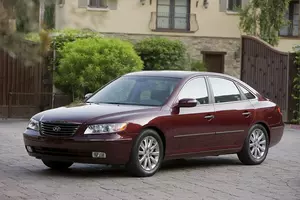
| Vehicle | Precise engine size | Difference from world average | Engine size to consumption ratio | Horsepower from 1 L | Engine size to 100 kg of weight |
|---|---|---|---|---|---|
| 2.7 V6 |
2.66 L (2656 cc) |
13.2% bigger | - | 73 hp from 1 L | 166 cc to 100 kg |
| 3.3 V6 |
3.34 L (3342 cc) |
42.5% bigger | 209 cc to 1 mpg | 78 hp from 1 L | 197 cc to 100 kg |
| 2.4 |
2.36 L (2359 cc) |
0.6% bigger | - | 76 hp from 1 L | 147 cc to 100 kg |
| 3.8 V6 |
3.78 L (3778 cc) |
61% bigger | - | 70 hp from 1 L | 222 cc to 100 kg |
| Vehicle | 2.7 V6 |
|---|---|
| Precise engine size | 2.66 L (2656 cc) |
| Difference from world average | 13.2 bigger |
| Engine size to consumption ratio | - |
| Horsepower from 1 L | 73 hp from 1 L |
| Engine size to 100 kg of weight | 166 cc to 100 kg |
| Vehicle | 3.3 V6 |
| Precise engine size | 3.34 L (3342 cc) |
| Difference from world average | 42.5 bigger |
| Engine size to consumption ratio | 209 cc to 1 mpg |
| Horsepower from 1 L | 78 hp from 1 L |
| Engine size to 100 kg of weight | 197 cc to 100 kg |
| Vehicle | 2.4 |
| Precise engine size | 2.36 L (2359 cc) |
| Difference from world average | 0.6 bigger |
| Engine size to consumption ratio | - |
| Horsepower from 1 L | 76 hp from 1 L |
| Engine size to 100 kg of weight | 147 cc to 100 kg |
| Vehicle | 3.8 V6 |
| Precise engine size | 3.78 L (3778 cc) |
| Difference from world average | 61 bigger |
| Engine size to consumption ratio | - |
| Horsepower from 1 L | 70 hp from 1 L |
| Engine size to 100 kg of weight | 222 cc to 100 kg |
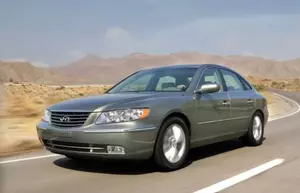
| Vehicle | Precise engine size | Difference from world average | Engine size to consumption ratio | Horsepower from 1 L | Engine size to 100 kg of weight |
|---|---|---|---|---|---|
| 2.4 |
2.36 L (2359 cc) |
0.6% bigger | - | 69 hp from 1 L | 147 cc to 100 kg |
| 3.8 V6 |
3.78 L (3778 cc) |
61% bigger | - | 70 hp from 1 L | 222 cc to 100 kg |
| 2.7 V6 |
2.66 L (2656 cc) |
13.2% bigger | 111 cc to 1 mpg | 72 hp from 1 L | 166 cc to 100 kg |
| 2.2 CRDi |
2.19 L (2188 cc) |
6.7% smaller | 73 cc to 1 mpg | 71 hp from 1 L | 129 cc to 100 kg |
| 3.3 V6 |
3.34 L (3342 cc) |
42.5% bigger | 145 cc to 1 mpg | 70 hp from 1 L | 197 cc to 100 kg |
| Vehicle | 2.4 |
|---|---|
| Precise engine size | 2.36 L (2359 cc) |
| Difference from world average | 0.6 bigger |
| Engine size to consumption ratio | - |
| Horsepower from 1 L | 69 hp from 1 L |
| Engine size to 100 kg of weight | 147 cc to 100 kg |
| Vehicle | 3.8 V6 |
| Precise engine size | 3.78 L (3778 cc) |
| Difference from world average | 61 bigger |
| Engine size to consumption ratio | - |
| Horsepower from 1 L | 70 hp from 1 L |
| Engine size to 100 kg of weight | 222 cc to 100 kg |
| Vehicle | 2.7 V6 |
| Precise engine size | 2.66 L (2656 cc) |
| Difference from world average | 13.2 bigger |
| Engine size to consumption ratio | 111 cc to 1 mpg |
| Horsepower from 1 L | 72 hp from 1 L |
| Engine size to 100 kg of weight | 166 cc to 100 kg |
| Vehicle | 2.2 CRDi |
| Precise engine size | 2.19 L (2188 cc) |
| Difference from world average | 6.7 smaller |
| Engine size to consumption ratio | 73 cc to 1 mpg |
| Horsepower from 1 L | 71 hp from 1 L |
| Engine size to 100 kg of weight | 129 cc to 100 kg |
| Vehicle | 3.3 V6 |
| Precise engine size | 3.34 L (3342 cc) |
| Difference from world average | 42.5 bigger |
| Engine size to consumption ratio | 145 cc to 1 mpg |
| Horsepower from 1 L | 70 hp from 1 L |
| Engine size to 100 kg of weight | 197 cc to 100 kg |
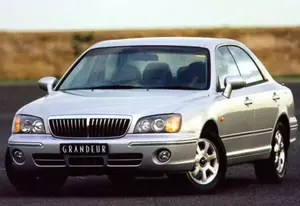
| Vehicle | Precise engine size | Difference from world average | Engine size to consumption ratio | Horsepower from 1 L | Engine size to 100 kg of weight |
|---|---|---|---|---|---|
| 3.0i V6 |
2.97 L (2972 cc) |
26.7% bigger | - | 61 hp from 1 L | 175 cc to 100 kg |
| 2.0i V6 |
2 L (1998 cc) |
14.8% smaller | - | 69 hp from 1 L | 133 cc to 100 kg |
| 2.5i V6 |
2.49 L (2494 cc) |
6.3% bigger | - | 69 hp from 1 L | 156 cc to 100 kg |
| 3.5i V6 |
3.5 L (3497 cc) |
49.1% bigger | - | 56 hp from 1 L | - |
| Vehicle | 3.0i V6 |
|---|---|
| Precise engine size | 2.97 L (2972 cc) |
| Difference from world average | 26.7 bigger |
| Engine size to consumption ratio | - |
| Horsepower from 1 L | 61 hp from 1 L |
| Engine size to 100 kg of weight | 175 cc to 100 kg |
| Vehicle | 2.0i V6 |
| Precise engine size | 2 L (1998 cc) |
| Difference from world average | 14.8 smaller |
| Engine size to consumption ratio | - |
| Horsepower from 1 L | 69 hp from 1 L |
| Engine size to 100 kg of weight | 133 cc to 100 kg |
| Vehicle | 2.5i V6 |
| Precise engine size | 2.49 L (2494 cc) |
| Difference from world average | 6.3 bigger |
| Engine size to consumption ratio | - |
| Horsepower from 1 L | 69 hp from 1 L |
| Engine size to 100 kg of weight | 156 cc to 100 kg |
| Vehicle | 3.5i V6 |
| Precise engine size | 3.5 L (3497 cc) |
| Difference from world average | 49.1 bigger |
| Engine size to consumption ratio | - |
| Horsepower from 1 L | 56 hp from 1 L |
| Engine size to 100 kg of weight | - |

| Vehicle | Precise engine size | Difference from world average | Engine size to consumption ratio | Horsepower from 1 L | Engine size to 100 kg of weight |
|---|---|---|---|---|---|
| 2.5i V6 |
2.49 L (2494 cc) |
6.3% bigger | - | 72 hp from 1 L | 166 cc to 100 kg |
| 2.0i V6 |
2 L (1998 cc) |
14.8% smaller | - | 74 hp from 1 L | 133 cc to 100 kg |
| 3.5i V6 |
3.5 L (3497 cc) |
49.1% bigger | - | 56 hp from 1 L | - |
| 3.0i V6 |
2.97 L (2972 cc) |
26.7% bigger | - | 66 hp from 1 L | 186 cc to 100 kg |
| Vehicle | 2.5i V6 |
|---|---|
| Precise engine size | 2.49 L (2494 cc) |
| Difference from world average | 6.3 bigger |
| Engine size to consumption ratio | - |
| Horsepower from 1 L | 72 hp from 1 L |
| Engine size to 100 kg of weight | 166 cc to 100 kg |
| Vehicle | 2.0i V6 |
| Precise engine size | 2 L (1998 cc) |
| Difference from world average | 14.8 smaller |
| Engine size to consumption ratio | - |
| Horsepower from 1 L | 74 hp from 1 L |
| Engine size to 100 kg of weight | 133 cc to 100 kg |
| Vehicle | 3.5i V6 |
| Precise engine size | 3.5 L (3497 cc) |
| Difference from world average | 49.1 bigger |
| Engine size to consumption ratio | - |
| Horsepower from 1 L | 56 hp from 1 L |
| Engine size to 100 kg of weight | - |
| Vehicle | 3.0i V6 |
| Precise engine size | 2.97 L (2972 cc) |
| Difference from world average | 26.7 bigger |
| Engine size to consumption ratio | - |
| Horsepower from 1 L | 66 hp from 1 L |
| Engine size to 100 kg of weight | 186 cc to 100 kg |
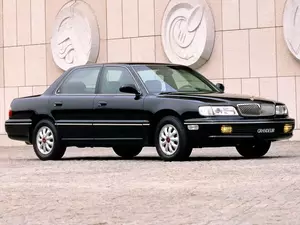
| Vehicle | Precise engine size | Difference from world average | Engine size to consumption ratio | Horsepower from 1 L | Engine size to 100 kg of weight |
|---|---|---|---|---|---|
| 3.0i V6 |
2.97 L (2972 cc) |
26.7% bigger | - | 69 hp from 1 L | 175 cc to 100 kg |
| 2.0i |
2 L (1997 cc) |
14.9% smaller | - | 70 hp from 1 L | 133 cc to 100 kg |
| 2.5i V6 |
2.5 L (2497 cc) |
6.4% bigger | - | 69 hp from 1 L | 156 cc to 100 kg |
| 3.5i V6 |
3.5 L (3497 cc) |
49.1% bigger | - | 64 hp from 1 L | 194 cc to 100 kg |
| Vehicle | 3.0i V6 |
|---|---|
| Precise engine size | 2.97 L (2972 cc) |
| Difference from world average | 26.7 bigger |
| Engine size to consumption ratio | - |
| Horsepower from 1 L | 69 hp from 1 L |
| Engine size to 100 kg of weight | 175 cc to 100 kg |
| Vehicle | 2.0i |
| Precise engine size | 2 L (1997 cc) |
| Difference from world average | 14.9 smaller |
| Engine size to consumption ratio | - |
| Horsepower from 1 L | 70 hp from 1 L |
| Engine size to 100 kg of weight | 133 cc to 100 kg |
| Vehicle | 2.5i V6 |
| Precise engine size | 2.5 L (2497 cc) |
| Difference from world average | 6.4 bigger |
| Engine size to consumption ratio | - |
| Horsepower from 1 L | 69 hp from 1 L |
| Engine size to 100 kg of weight | 156 cc to 100 kg |
| Vehicle | 3.5i V6 |
| Precise engine size | 3.5 L (3497 cc) |
| Difference from world average | 49.1 bigger |
| Engine size to consumption ratio | - |
| Horsepower from 1 L | 64 hp from 1 L |
| Engine size to 100 kg of weight | 194 cc to 100 kg |
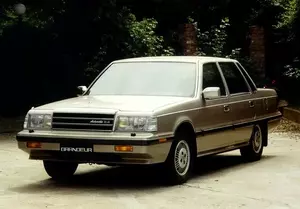
| Vehicle | Precise engine size | Difference from world average | Engine size to consumption ratio | Horsepower from 1 L | Engine size to 100 kg of weight |
|---|---|---|---|---|---|
| 2.0i |
2 L (1997 cc) |
14.9% smaller | 95 cc to 1 mpg | 60 hp from 1 L | 143 cc to 100 kg |
| 3.0i V6 |
2.97 L (2972 cc) |
26.7% bigger | 156 cc to 1 mpg | 55 hp from 1 L | 198 cc to 100 kg |
| 2.4i |
2.35 L (2351 cc) |
0.2% bigger | 112 cc to 1 mpg | 55 hp from 1 L | 168 cc to 100 kg |
| Vehicle | 2.0i |
|---|---|
| Precise engine size | 2 L (1997 cc) |
| Difference from world average | 14.9 smaller |
| Engine size to consumption ratio | 95 cc to 1 mpg |
| Horsepower from 1 L | 60 hp from 1 L |
| Engine size to 100 kg of weight | 143 cc to 100 kg |
| Vehicle | 3.0i V6 |
| Precise engine size | 2.97 L (2972 cc) |
| Difference from world average | 26.7 bigger |
| Engine size to consumption ratio | 156 cc to 1 mpg |
| Horsepower from 1 L | 55 hp from 1 L |
| Engine size to 100 kg of weight | 198 cc to 100 kg |
| Vehicle | 2.4i |
| Precise engine size | 2.35 L (2351 cc) |
| Difference from world average | 0.2 bigger |
| Engine size to consumption ratio | 112 cc to 1 mpg |
| Horsepower from 1 L | 55 hp from 1 L |
| Engine size to 100 kg of weight | 168 cc to 100 kg |